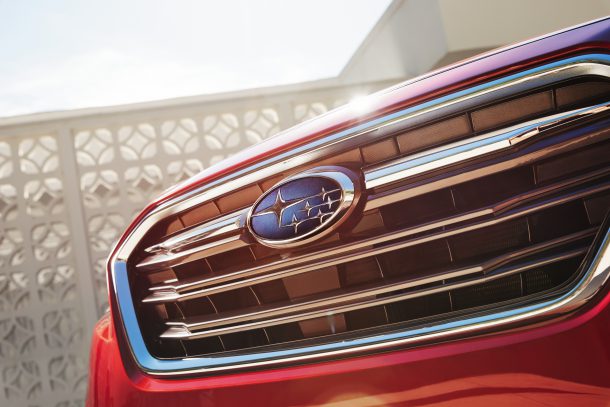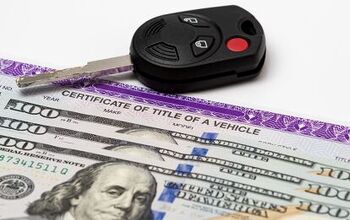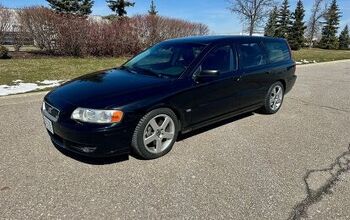Chip Shortage: Subaru Shutting Down SIA Through April

Today’s update on the global semiconductor shortage involves Subaru, which recently announced that it would be suspending production at its plant in Indiana. Lafayette’s Subaru of Indiana Automotive (SIA) will be idled through the end of April while the automaker waits for suppliers to catch up. It’s a situation we’ve seen numerous manufacturers forced into this year, with Ford arguably being the most relevant for the North American market.
Those wishing for relief are in for a disappointment, too. Despite earlier assurances that the semiconductor shortage would ease over the summer, the likelihood of the industry’s chip-related hardships now looms larger than ever. Numerous industry groups are speculating that chips will be difficult to come by (especially in Western countries) through the end of the year, with the China Association of Automobile Manufacturers (CAAM) recently predicted that the shortage would actually worsen through 2021 before gradually returning to normal. Obviously, nobody can predict the future, but the present supply chains are in such a sorry state that it would be irresponsible to think they were on the cusp of a much-needed rebound.
Subaru’s announcement came on Tuesday, with the automaker explaining its need to idle SIA for the rest of April. The company estimated the number of vehicles lost at roughly 15,000 units. Based on how things have played out for other manufacturers, Subaru could easily see the shutdown extend into May. Though it’s hoping that won’t be necessary, adding that the recent fire at Japan’s Renesas Electronics played no factor in the decision.
Semiconductor chips have seen a massive uptick in demand over the last few years as increasingly more products require them and often in greater numbers than before. Cars use more of them than ever before but so do a lot of other devices that we’ve decided need to be perpetually connected to the internet. Smart devices are becoming all the rage in people’s homes and the pandemic resulted in a huge buy-up of computers, tablets, and other forms of digital entertainment while everyone has been locked indoors during the pandemic. Meanwhile, lockdowns handicapped just about every supply chain on the planet and setback component manufacturers dramatically.
We can’t even begin to assume when things will return to normal. But we do know that other shortages are about to become a serious problem, with rubber waiting on deck to become the next issue.
[Image: Subaru]

A staunch consumer advocate tracking industry trends and regulation. Before joining TTAC, Matt spent a decade working for marketing and research firms based in NYC. Clients included several of the world’s largest automakers, global tire brands, and aftermarket part suppliers. Dissatisfied with the corporate world and resentful of having to wear suits everyday, he pivoted to writing about cars. Since then, that man has become an ardent supporter of the right-to-repair movement, been interviewed on the auto industry by national radio broadcasts, driven more rental cars than anyone ever should, participated in amateur rallying events, and received the requisite minimum training as sanctioned by the SCCA. Handy with a wrench, Matt grew up surrounded by Detroit auto workers and managed to get a pizza delivery job before he was legally eligible. He later found himself driving box trucks through Manhattan, guaranteeing future sympathy for actual truckers. He continues to conduct research pertaining to the automotive sector as an independent contractor and has since moved back to his native Michigan, closer to where the cars are born. A contrarian, Matt claims to prefer understeer — stating that front and all-wheel drive vehicles cater best to his driving style.
More by Matt Posky
Latest Car Reviews
Read moreLatest Product Reviews
Read moreRecent Comments
- Lou_BC Well, I'd be impressed if this was in a ZR2. LOL
- Lou_BC This is my shocked face 😲 Hope formatting doesn't fook this up LOL
- Lou_BC Junior? Would that be a Beta Romeo?
- Lou_BC Gotta fix that formatting problem. What a pile of bullsh!t. Are longer posts costing TTAC money? FOOK
- Lou_BC 1.Honda: 6,334,825 vehicles potentially affected2.Ford: 6,152,6143.Kia America: 3,110,4474.Chrysler: 2,732,3985.General Motors: 2,021,0336.Nissan North America: 1,804,4437.Mercedes-Benz USA: 478,1738.Volkswagen Group of America: 453,7639.BMW of North America: 340,24910.Daimler Trucks North America: 261,959


































Comments
Join the conversation
My 1975 Riviera runs well on the chips it carries, in this case, Wavy Lays.
Welcome to the Europe after WWII: shortages of everything and total dependence on US of A. Today the West depends in everything on China.